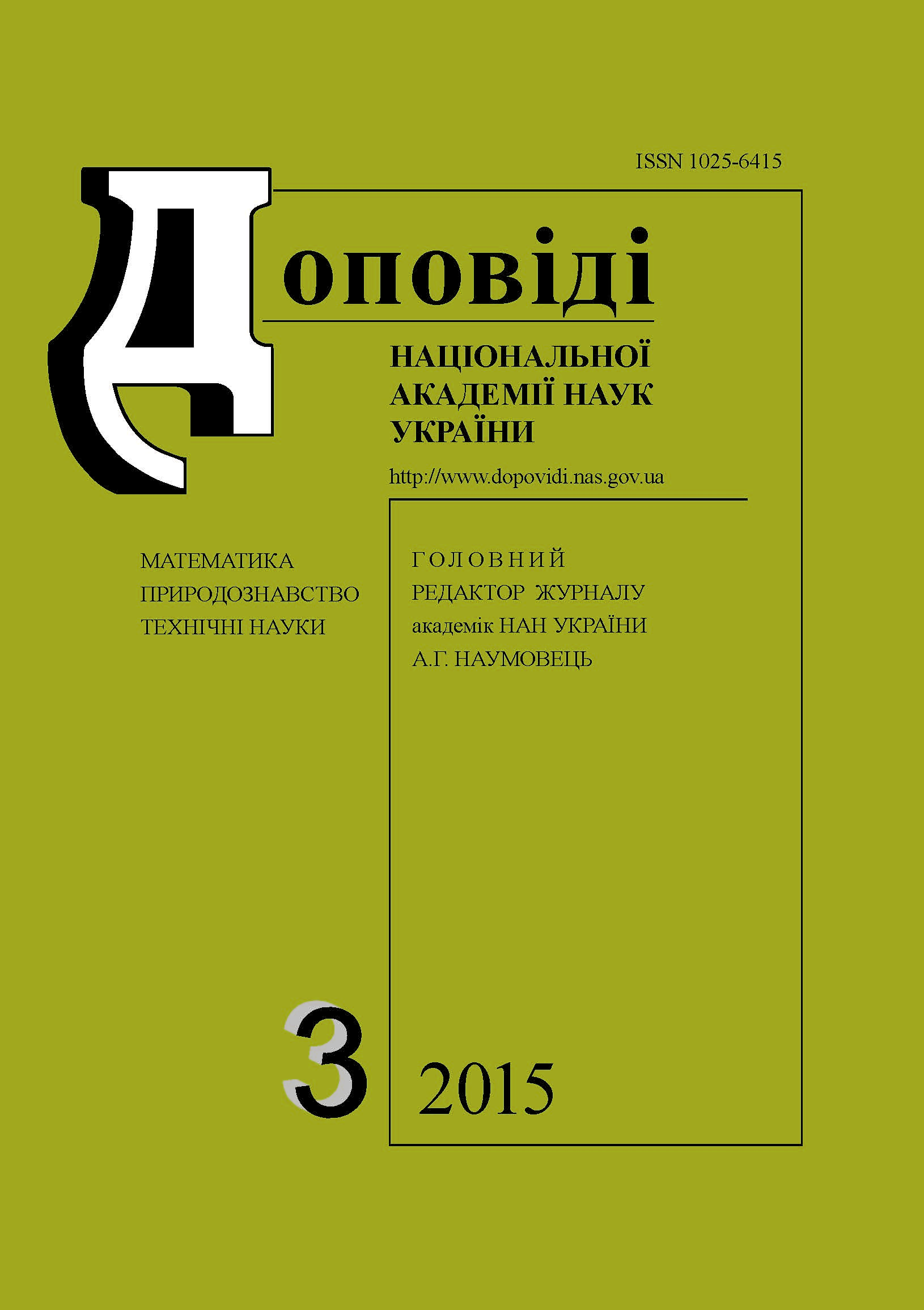On the propagation of axisymmetric elastoelastic waves in a hollow cylinder made of a functionally gradient piezoceramic material
DOI:
https://doi.org/10.15407/dopovidi2015.03.050Keywords:
axisymmetric elastoelastic waves, hollow cylinder, piezoceramic materialAbstract
The problem of kinematic analysis of the propagation of axisymmetric elastoelastic waves in a hollow cylinder made of a piezoceramic functionally gradient material polarized in the radial direction is considered. Properties of the material are changed by the exponential law in the radial direction. The external surface of the cylinder is free of loads and is covered by infinitely thin electrodes, to which a harmonically changing potential difference  is applied. To solve the problem, an efficient numerical-analytical method is offered. After the separation of variables and the representation of the solution as the waves traveling along the cylinder, the initial problem of the theory of electroelasticity in partial derivatives is reduced to a boundary-value inhomogeneous one described by a system of ordinary differential equations. The system is solved by the stable method of discrete orthogonalization. The results of numerical analysis for a cylinder made of PZT 4 functionally gradient piezoceramics are presented.
is applied. To solve the problem, an efficient numerical-analytical method is offered. After the separation of variables and the representation of the solution as the waves traveling along the cylinder, the initial problem of the theory of electroelasticity in partial derivatives is reduced to a boundary-value inhomogeneous one described by a system of ordinary differential equations. The system is solved by the stable method of discrete orthogonalization. The results of numerical analysis for a cylinder made of PZT 4 functionally gradient piezoceramics are presented.
Downloads
References
Pochhammer L. J. Reine Angew. Math., 1876, 81, No 4: 324–336.
Cree C. Quart. J. Pure and Appl. Math., 1886, 21, No 83/84: 287–298.
Cree C. The equation of an isotropic elastic solid in polar and cylindrical coordinates, their solution and application, Trans. Cambridge Philos. Soc., 1889, Pt. III: 250–369.
Physical acoustics. Vols 1-7. Eds Mezon U., Terston R., Moscow: Mir, 1966, (in Russian).
Thurston R. N. J. Acoust. Soc. Am., 1978, 64, No 1: 1–37. https://doi.org/10.1121/1.381962
Grinchenko V. T., Meleshko V. V. Harmonic oscillations and waves in elastic bodies, Kiev: Nauk. Dumka, 1981 (in Russian).
Kolskii H. Waves of tensions are in solids, Moscow: IL, 1955 (in Russian).
Grinchenko V. T., Ulitko A. F., Shulga N. A. Mechanics of the constrained fields is in the elements of constructions. Electro-resiliency.Vol. 5, Kiev: Nauk. Dumka, 1989 (in Russian).
Shulga N. A. Uspekhi mekhaniki, 2007: 681–702 (in Russian).
Birman V., Byrd L. W. ASME Appl. Mech. Rew., 2007, 195: 195–216. https://doi.org/10.1115/1.2777164
Wu C.-P., Tsai T.-C. Appl. Math. Model., 2012, 36, Iss. 5: 1910–1930. https://doi.org/10.1016/j.apm.2011.07.077
Grigorenko A., Muller W. H., Wille R., Loza I. Continuum Mech. Thermodyn., 2012, 24, No 4–6: 515–524. https://doi.org/10.1007/s00161-012-0239-8
Grigorenko A. Ya, Loza I. A. Prikl. mekhanika, 2011, 47, No 6: 118–124.
Downloads
Published
How to Cite
Issue
Section
License
Copyright (c) 2025 Reports of the National Academy of Sciences of Ukraine

This work is licensed under a Creative Commons Attribution-NonCommercial 4.0 International License.



